Refugee group preaches sanitation and hygiene through MDD
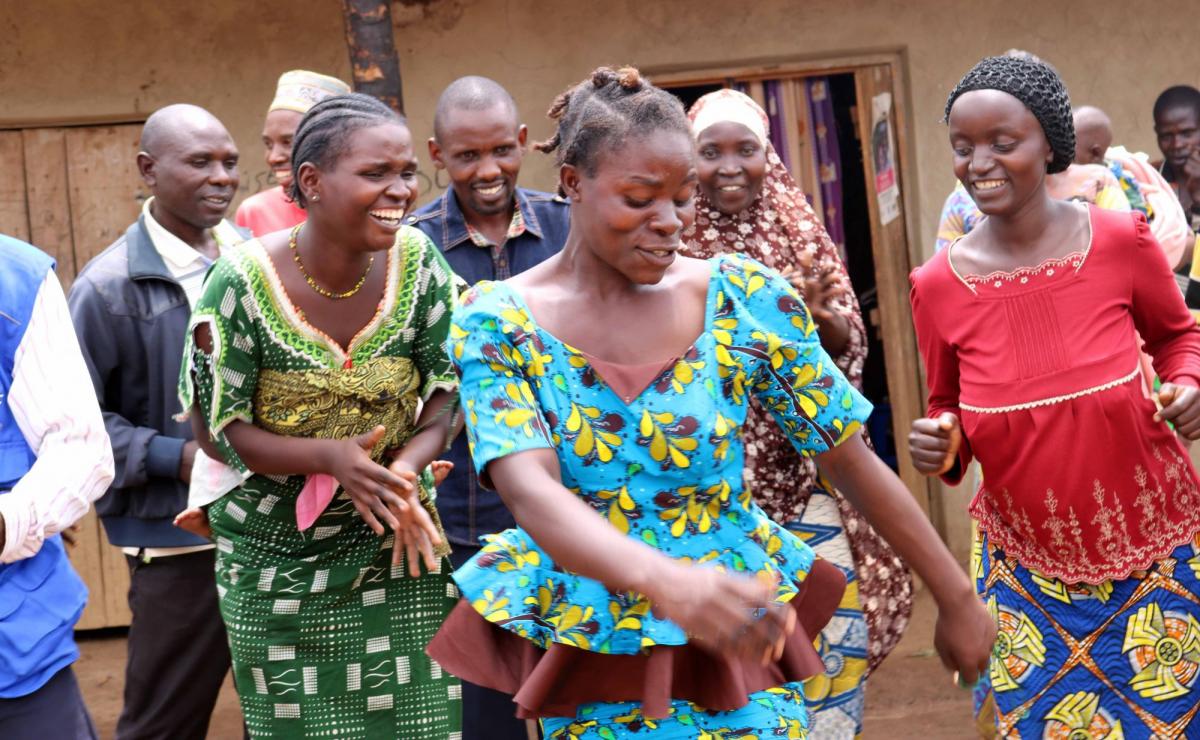
KAMWENGE - They preach sanitation and hygiene through music, dance and drama (MDD). Mapendo Village Health Club, a group of 30 Congolese refugees moves to every zone of Rwamwanja settlement singing and acting hygiene practices like; the safe water chain, household cleanliness, proper use of latrines and waste management.
“We Congolese are people of music, anything to with rhythm, dance and drama is part of us, it’s like our culture and that’s why we chose MDD as our communication medium,” said Scolar Nyampanda, the group’s lead vocalist.
Nyampanda explains that some of their drama scenes feature unhygienic people’s lifestyle who end up with waterborne disease infections hence losing their lives. “Our drama scenes are catchy and touching, they frighten our viewers who imagine themselves losing their lives like the unhygienic characters.”
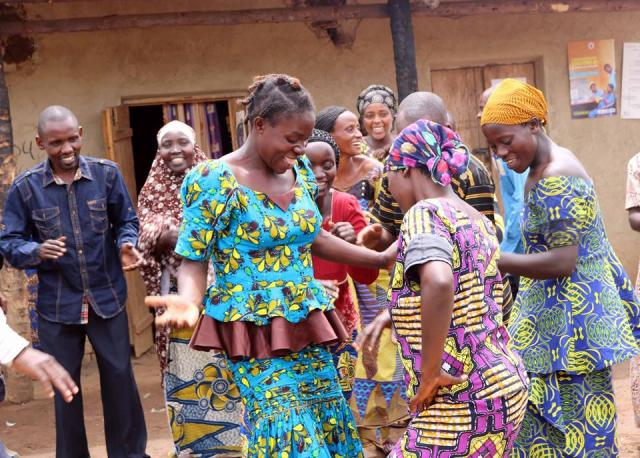
MDD attracts the group’s target audiences “We visit one zone per week, people converge in hundreds and enjoy our edutainment, then raise sanitation and hygiene related inquiries to which we respond.” Nyampanda.
With knowledge acquired through training by the Lutheran World Federation (LWF) with funds from Bureau of Population, Refugees, and Migration (PRM), the Club can sufficiently share knowledge about sanitation and hygiene in the settlement.
LWF and PRM aim at improving sanitation and hygiene among the people of Rwamwanja. Statistics from Uganda’s Ministry of Health indicate that 400 people die every day as a result of waterborne infections like diarrhoea, dysentery, cholera and typhoid, which are easily preventable with proper sanitation and hygiene.
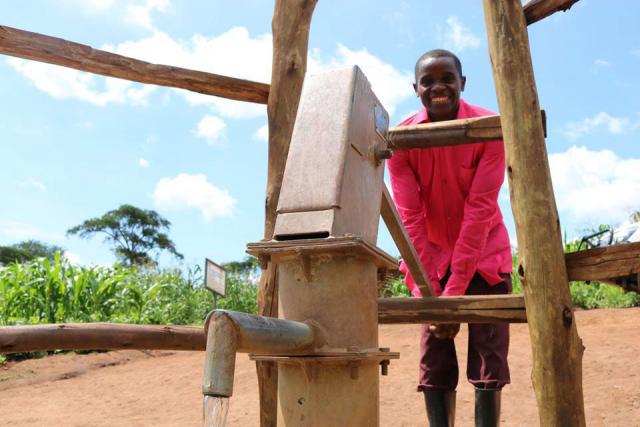
Safe water chains improving in Rwamwanja
Water points are kept clean, free from shrubs and animals, water containers like jerry cans and buckets used by people for water collecting and storage are cleaned regularly. Mapendo Village Health Club works with borehole Water User Committees responsible for maintaining cleanliness around boreholes sites to sensitize water users about the drawbacks of collecting and storing water in dirty containers.
“We deny those with dirty jerry cans access to water until they are clean which is good for their health and that of the community at large,” said Safari Savaveri, a Water User Committee Chairperson for borehole in Kikurura A constructed by LWF with funds from PRM.
Erinah Mbaherekyo, a WASH Officer with LWF explains that water from boreholes is clean and free from microorganisms however, it gets contaminated during the process of collecting and storage. Mbaherekyo describes that dirt around a water point and in water containers contaminates the water.
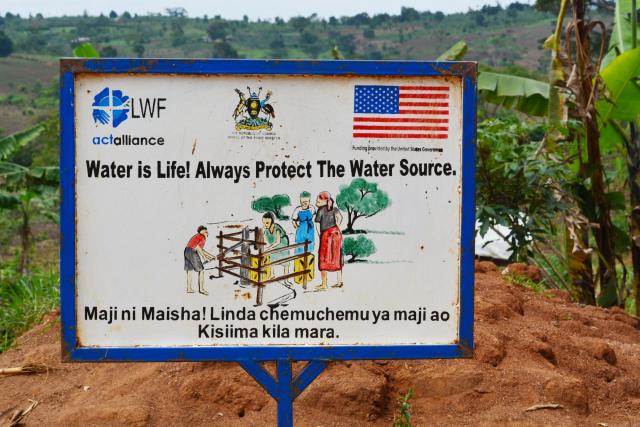
With this, LWF sensitizes and trains Water User Committees on the benefits and how to keep water point sites clean. “We clean the borehole site every day; we have also constructed a fence around it to avoid animals from accessing to prevent water contamination,” added Savaveri.
Mapendo Village Health Club also moves door to door sensitising households on how to store drinking water in a safer manner. “We advise our people to store drinking water in small necked containers and also use clean sun dried utensils for drinking water,” Nyampanda.
With small necked containers, Nyampanda explains that one can’t dip their hands or any other container which might be unclean to draw water but will rather pour water directly from the storage container to a cup/glass.
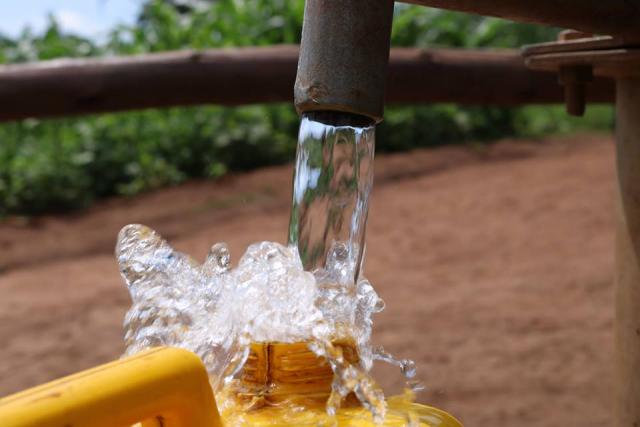
Household cleanliness has become a way of life
Before Mapendo started sanitation and hygiene edutainment as well as door to door sensitizations in Rwamwanja, Esperanza Iganbiire, a group member recalls the settlement as a very unhygienic place where many of the families would let their children engage in open defection.
However, proper sanitation and hygiene practices are taking over. People are now aware about the magnitude of the effects of unhygienic practices. “They are afraid of catching killer waterborne diseases like dysentery, cholera and diarhorrea and dying like the characters they watch in our dramas,” said Ingabiire.
Majority of the households have become model homes, Mbaherekyo explains that they have constructed and use household latrines, outdoor utensil drying racks and also dispose their rubbish at the communal garbage pits constructed by LWF. Mbaherekyo says there are 35 model homes in the settlement unlike before when there was none.
With proper hygiene and sanitation, Mbaherekyo explains that people’s health will improve and they will rarely spend on medical aid, they will be strong enough to engage in livelihood activities and also live happily and confidently in a clean environment.
LWF appreciates PRM's support towards its humanitarian activities aimed at protecting lives, extening clean water as well as improving sanitation and hygiene among the people of Rwamwanja settlement.

